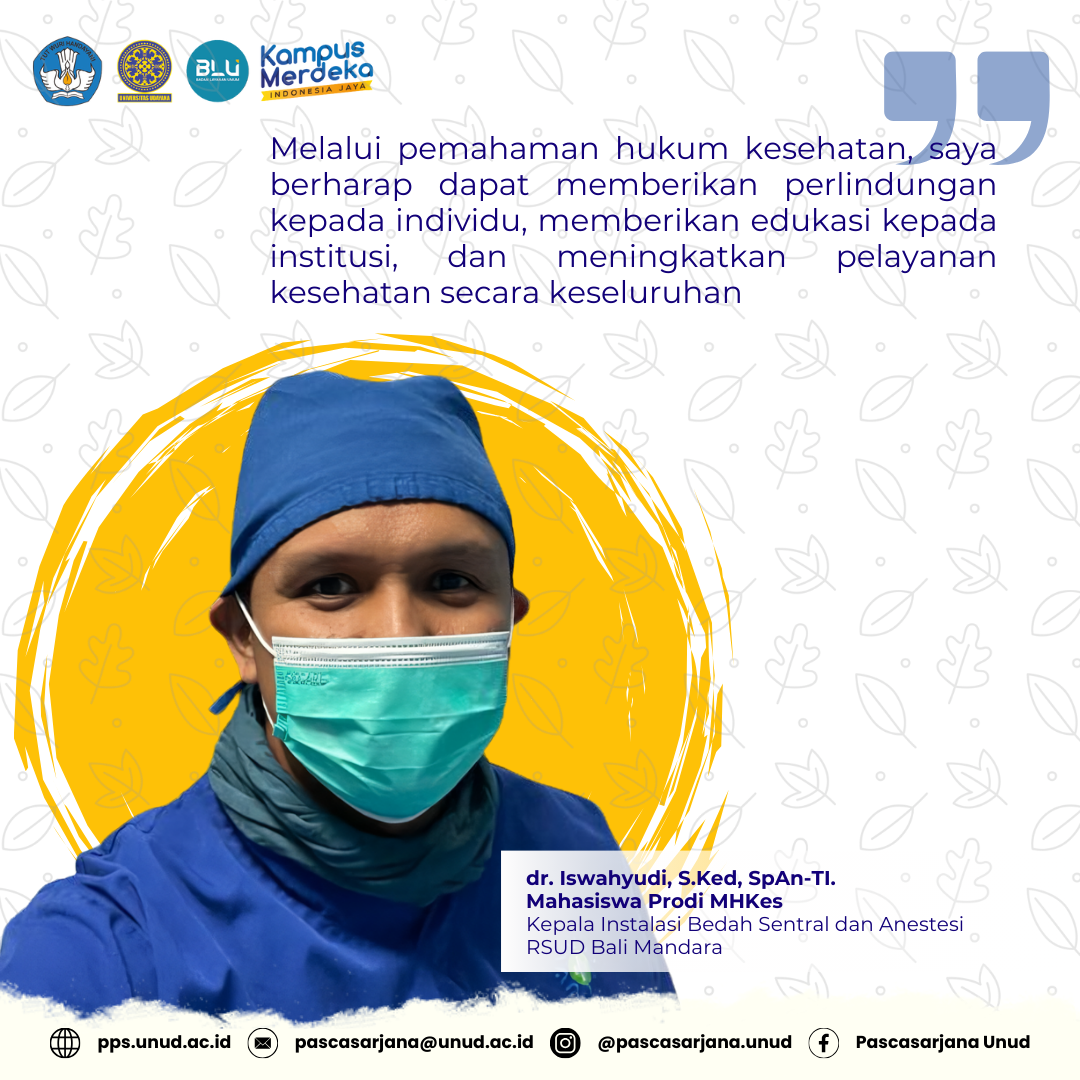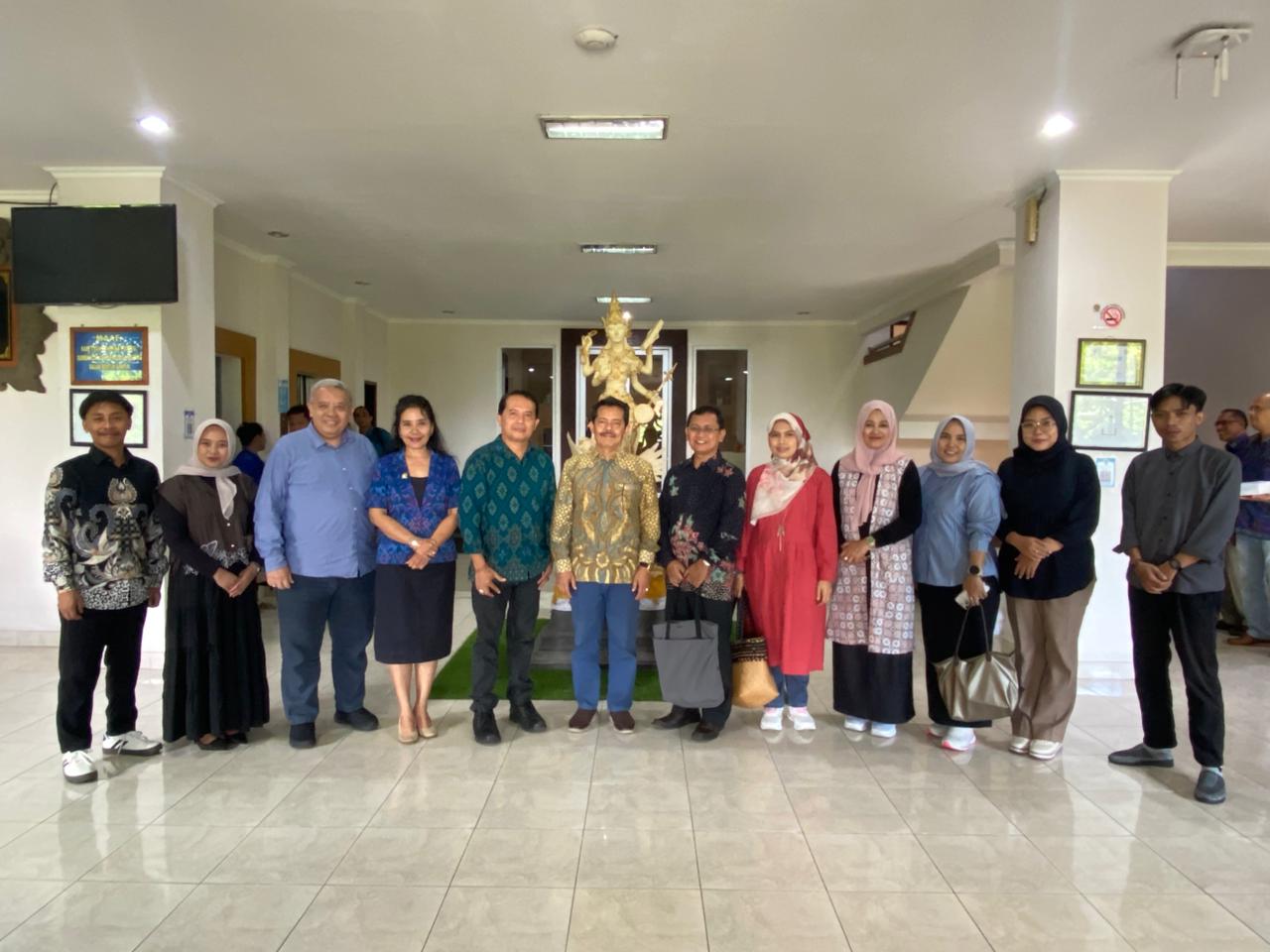Totality in the Medical World, dr. Iswahyudi Studies Health Law at Postgraduate Unud
In response to the increasing complexity of medical disputes in modern medical practice, dr. Iswahyudi, an anesthesia specialist who also serves as the Head of the Department of Anesthesiology, Intensive Therapy, and Pain Management at RSUD Bali Mandara, chose the bold step of pursuing new knowledge in the field of law.
With his medical expertise, Dr. Iswahyudi saw an urgent need for a deeper understanding of the legal aspects of healthcare. He decided to pursue a Master's degree in Health Law at the Postgraduate Program of Udayana University (Unud) as a first step in dealing with the increasing complexity of medical disputes.
"I personally observe that the potential for medical disputes is high because the patient's interest in the surgical and anesthesia processes is very significant. These disputes often arise due to differences in perceptions of the end result of health services without considering the process," he said.
In his observation, dr. Iswahyudi highlighted that lay understanding is often limited to procedural aspects, where doctors or health workers are only responsible for the service process, not the end result. However, after delving deeper into the rights and obligations in therapeutic agreements, he realized the complexities involving various legal aspects in medical practice.
According to him, a better understanding of the rights and obligations of doctors, patients, and hospitals is a crucial step in preventing medical disputes. Patient satisfaction is the main focus in providing health services, as this can affect the image of a hospital in the eyes of the public. "Through understanding health law, I hope to provide protection to individuals, educate institutions, and improve overall health services," he added.
In his pursuit of this knowledge, Dr. Iswahyudi believes that a deep understanding of the legal aspects of medical practice will help in resolving medical disputes more fairly. He plans to integrate medical and legal logic to sort out medical errors and adverse events that may occur. "Along with the new health law and public awareness of rights related to health services, the science of health law is increasingly relevant and widely applicable in resolving medical disputes," he concluded.
With the spirit to learn and contribute more to the world of health, dr. Iswahyudi looks forward to a future full of new knowledge that can bring benefits to individuals, institutions, and especially to the patients who will be treated. (bmp/trs)

.jpeg)

UDAYANA UNIVERSITY